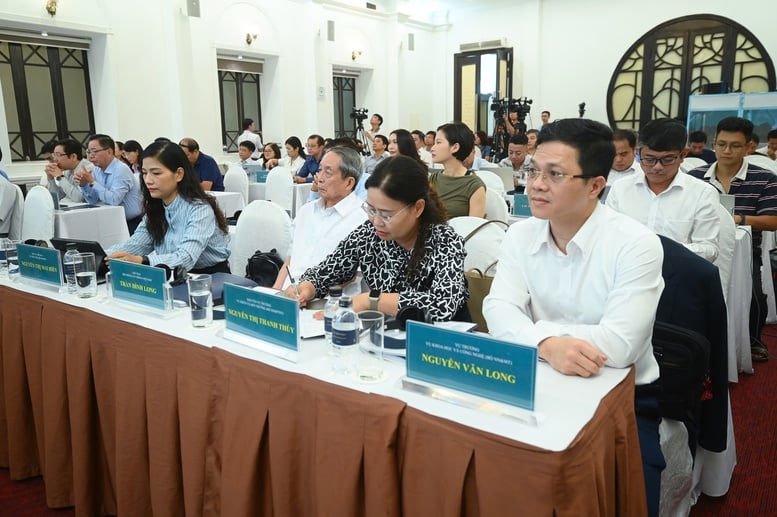
Overview of the forum "Gene editing in agriculture - Strategic technology associated with legal framework" - Photo: VGP/Do Huong
At the Forum "Gene Editing in Agriculture - Strategic Technology Associated with Legal Framework" on October 18, Deputy Minister of Agriculture and Environment Phung Duc Tien affirmed that science and technology are becoming the key driving force to promote sustainable development of Vietnamese agriculture, improve productivity, quality and global competitiveness.
Strategic technology for modern agriculture
According to the Deputy Minister, the spirit of science and technology development has been affirmed in Resolution 19 on agriculture, farmers, and rural areas and Resolution 57 of the Politburo (issued on July 10, 2024), which considers science, technology and innovation as the main driving force to modernize the productive forces.
Currently, science and technology contribute about 30% of the total added value of the agricultural sector. "By 2025, the agricultural sector could reach a record export turnover of 67-70 billion USD - a testament to the effectiveness of scientific and technological innovation," he said.
In the field of technology, biotechnology is considered a spearhead with breakthrough potential, helping to select and create crop and livestock varieties that adapt to climate change, increase productivity and product value. However, the Deputy Minister emphasized that perfecting the legal framework is still a prerequisite for science and technology to be effective, while "creating an environment and motivation for scientists to confidently contribute, and inspiring the spirit of creativity".
He likened this forum to a new "Contract 10" in science and technology - a strong push to "unleash" scientists, promote innovation in thinking and mechanisms, and create conditions for applied research to be transformed into products serving life.
According to the Agricultural Genetics Institute, gene editing technology allows precise manipulation of each position in the plant genome, helping to create plant varieties that are salt-tolerant, disease-resistant, have increased nutritional value, or have a longer shelf life, without the need to introduce foreign genes like genetically modified organisms (GMOs). As a result, gene-edited products are almost identical to natural hybrids, while shortening the selection time to only 2-5 years, instead of 10-15 years as before.
Currently, many domestic institutes and schools such as the Institute of Agricultural Genetics, Vietnam Academy of Agriculture, Hanoi National University or Ho Chi Minh City Biotechnology Center have mastered this technology, producing many outstanding results: salt-tolerant rice, soybeans with reduced indigestible sugar, tomatoes rich in carotenoids, corn and papaya with increased productivity and quality. However, because the 2008 Law on Biodiversity only defines "genetically modified organisms", gene-edited products, even though they do not contain foreign DNA, are still classified with GMOs, causing difficulties for commercialization and international integration.
Experts say that Vietnam needs to separate the concept of "gene editing" from "genetic modification" and apply a management mechanism based on the nature of the product, not the technology that creates it. This is a necessary step to build a flexible and transparent legal framework, helping Vietnam become a pioneer in the region in developing and commercializing genetically modified crops, contributing to ensuring food security, reducing emissions and adapting to climate change.
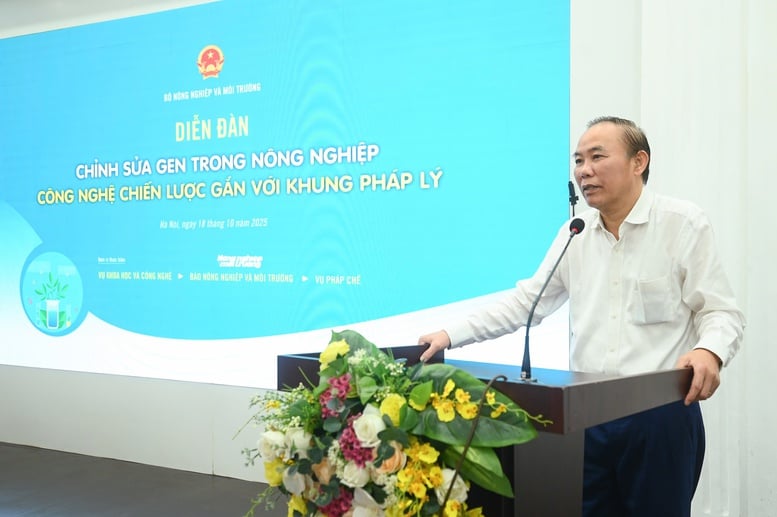
Deputy Minister of Agriculture and Environment Phung Duc Tien affirmed that biotechnology is considered a spearhead with breakthrough potential in agriculture - Photo: VGP/Do Huong
International experience and new management trends
Dr. Nguyen Duy Phuong, Head of the Department of Molecular Pathology (Institute of Agricultural Genetics), said that gene editing technology is opening up a new direction for modern plant breeding. Since the early 2000s, this technology has developed strongly in the world, helping to shorten the breeding cycle from 6-15 years to 2-5 years, while increasing the accuracy in trait selection.
Mr. Phuong emphasized the difference between gene transfer technology (creating foreign DNA) and gene editing technology (changing endogenous DNA), in which the CRISPR-Cas9 tool allows for precise mutations without leaving traces of foreign DNA. Vietnam has a solid scientific foundation and human resources, many new plant products are ready for testing, but still "cannot be put on the market" due to the lack of separate management regulations.
"The Party and Government have identified gene editing as a strategic technology. What is needed now is to soon complete the legal framework, creating conditions for scientists and businesses to commercialize research results," he said, while recommending adjusting the concept of "genetically modified organisms" in the Law on Biodiversity to reflect the true nature of science.
According to him, Vietnam has all the conditions to avoid falling behind if it knows how to take advantage of opportunities and synchronize social awareness, policies and scientific capacity. At that time, gene editing technology will not only be the "spearhead" of modern agriculture but also a symbol of harmony between technological development and environmental protection, biodiversity - the foundation for a sustainable and self-reliant agriculture.
Sharing at the forum, Dr. Nguyen Van Long - Director of the Department of Science and Technology, Ministry of Agriculture and Environment said that the world is currently applying two main approaches in managing gene-edited products: one is risk assessment based on the biological characteristics of the final product, regardless of the technology used to create it; the other is management based on technological processes.
Some countries such as Australia, Japan, the US or Argentina do not consider genetically modified organisms as GMOs if they do not insert DNA from other species or do not create new gene combinations. For example, since 2019, Australia has removed organisms edited by the SDN1 mechanism (without foreign DNA) from the GMO list.
In Vietnam, the Party and Government have issued many important directives to promote research, application and safe management of genetically modified organisms. However, the legal system on gene editing technology is still incomplete, while scientific communication is still limited, leading to a cautious mentality in society and the connection between research - business - production is not really effective.
According to Mr. Long, Vietnam is considering amending and supplementing the 2008 Law on Biodiversity to update concepts and regulations related to gene editing technology, and at the same time build a management and trade mechanism in line with global trends. "We will modernize the laboratory system, develop a high-quality human resource team, promote international cooperation and intellectual property protection, thereby making biotechnology a pillar of modern agriculture," he emphasized.
Do Huong
Source: https://baochinhphu.vn/cong-nghe-chinh-gen-co-the-tao-but-pha-trong-nganh-nong-nghiep-102251018112847067.htm



![[Photo] General Secretary To Lam receives the Director of the Academy of Public Administration and National Economy under the President of the Russian Federation](/_next/image?url=https%3A%2F%2Fvphoto.vietnam.vn%2Fthumb%2F1200x675%2Fvietnam%2Fresource%2FIMAGE%2F2025%2F12%2F08%2F1765200203892_a1-bnd-0933-4198-jpg.webp&w=3840&q=75)




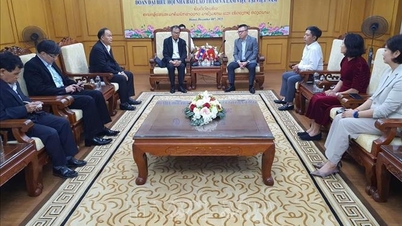



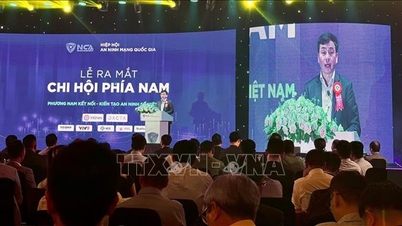


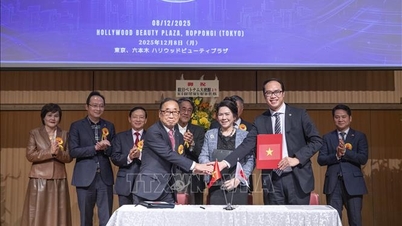






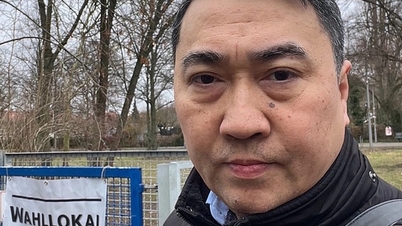
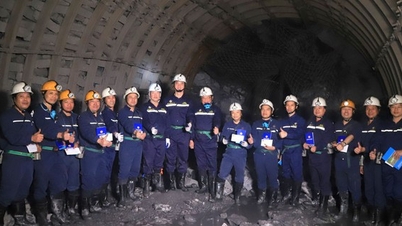
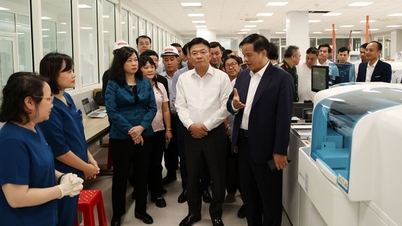
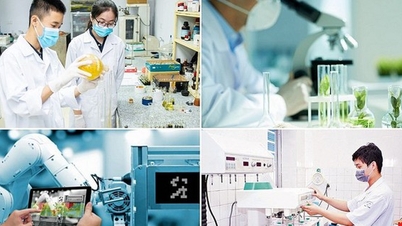

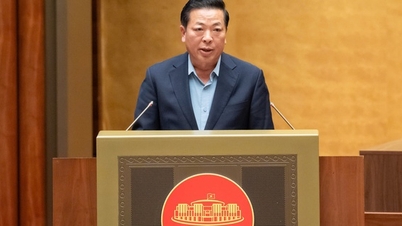































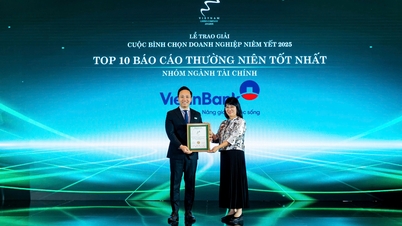







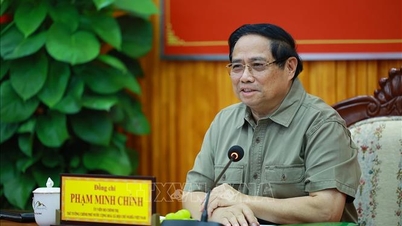

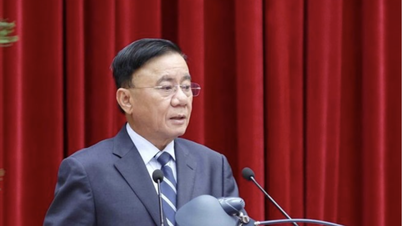
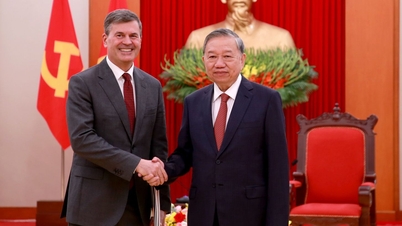











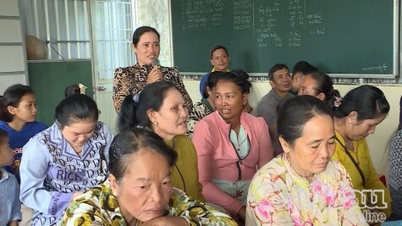















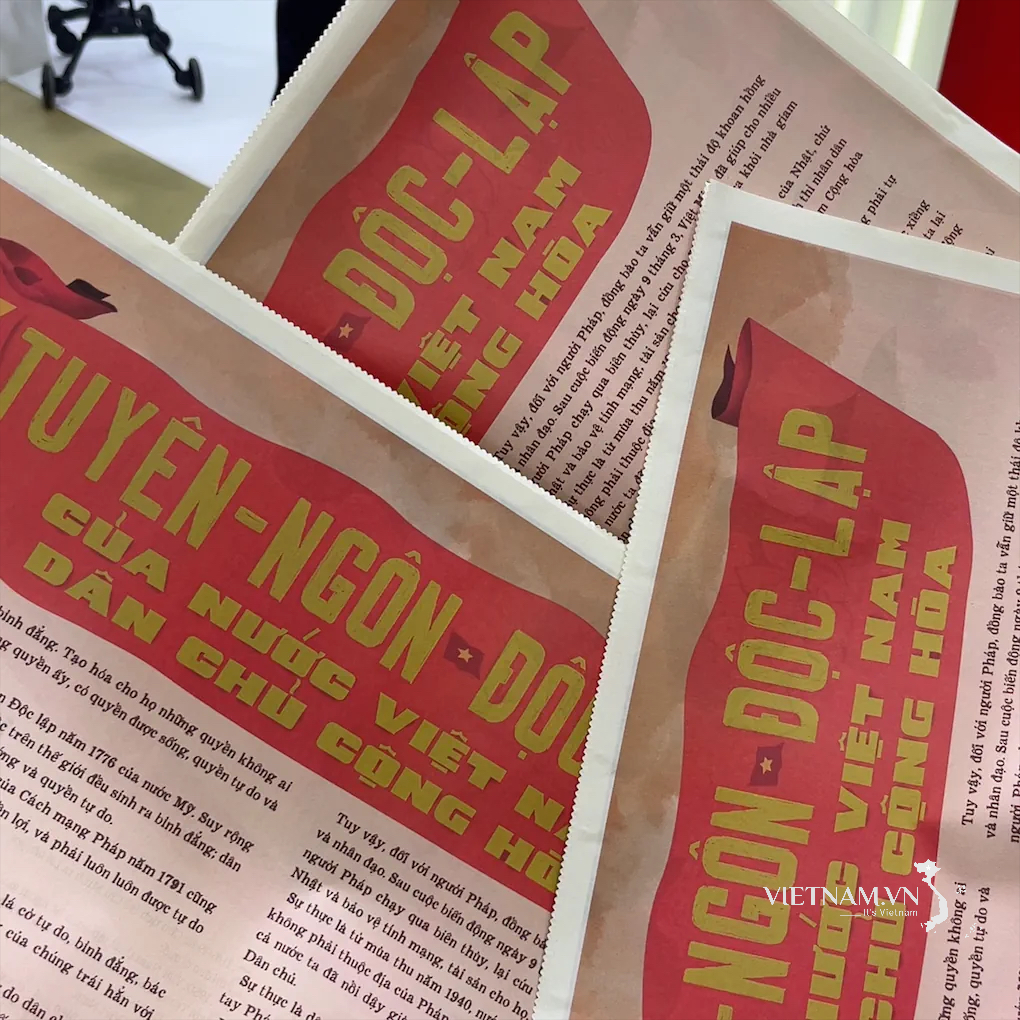

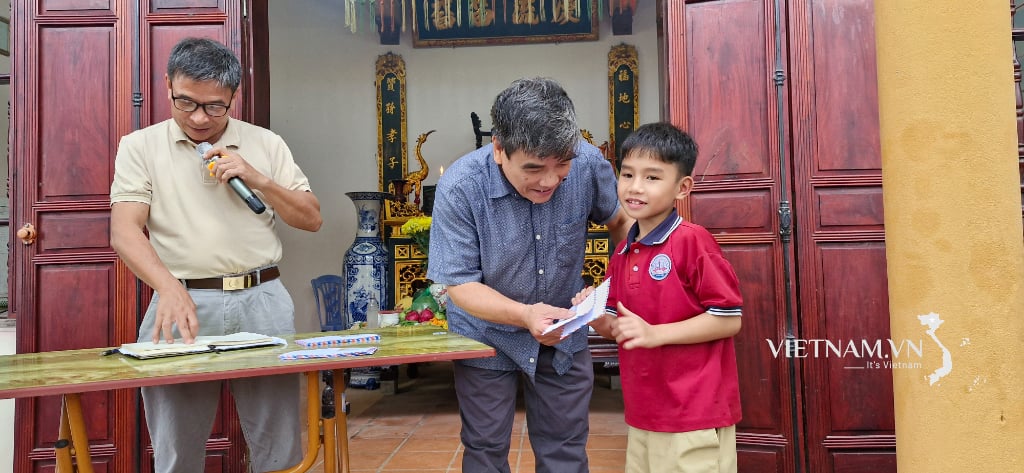
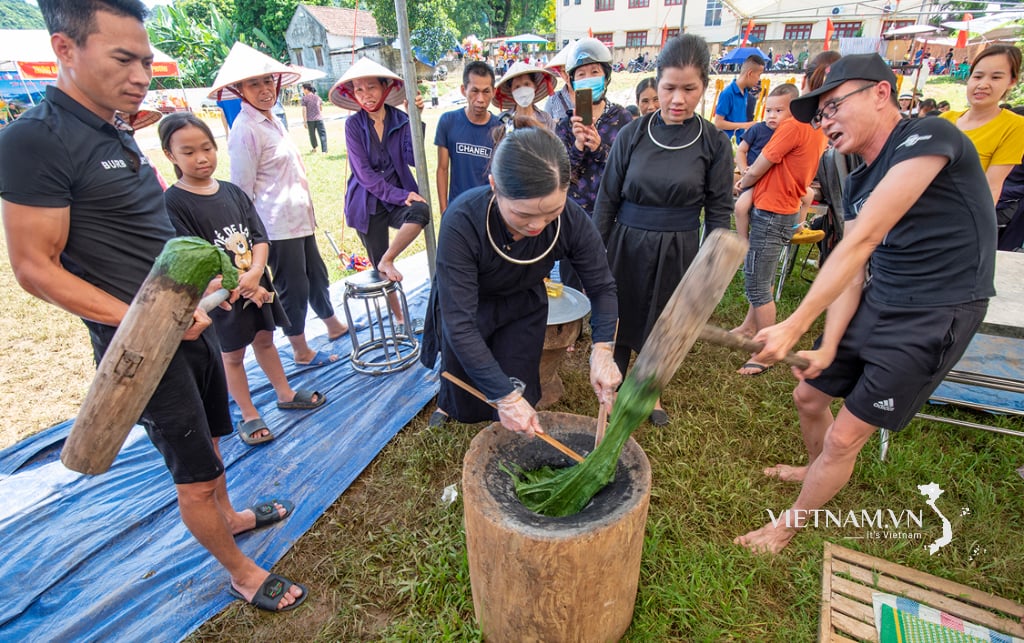




Comment (0)